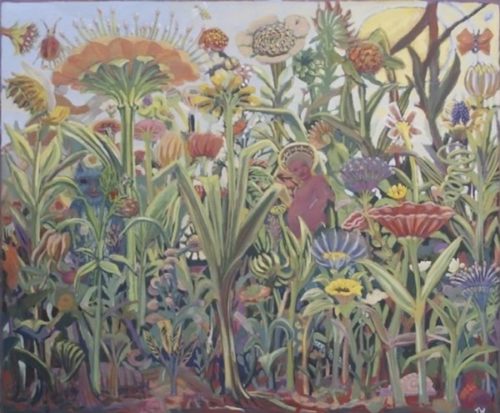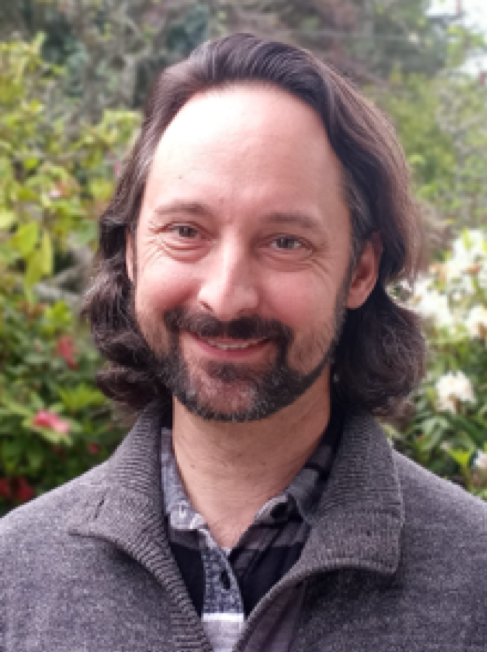Description
March 21, 2020
Seminar Leader: Ladson Hinton
Voids and Xenophobic Fears
Man, Machine, Disruption and Madness: Black Hole Capitalism and Technological Tyranny
The focus of the seminar will be the underlying currents of our epoch, which overwhelm our capacity to reflect, providing soil for extremists of every kind. I will share an incident that I witnessed on the streets of Seattle. In discussing this disruptive happening, with its strangely hopeful thread, multiple dimensions of the contemporary scene emerge, including race. The relentless power of Black Hole Capitalism and Technology, climate disaster, and the possible end of the era of the human, the Anthropocene, will loom at the center of our concerns.
CEU Objectives:
- To understand the historical and philosophical relationship humans have with technology.
- To understand how narrative and image help create our sense of place in the world.
- To better understand how technocratic thinking can erode an ethic of care and cause suffering and ethical dilemmas for our clients and people we serve.
Ladson Hinton is a member of the Society of Jungian Analysts of Northern California, the Institute for Contemporary Psychoanalysis in Los Angeles, and a founding member of the New School for Analytical Psychology in Seattle. He serves on the editorial board of the Journal of Analytical Psychology and practices, consults, and teaches in Seattle. In 2009 he received an Award for Distinguished Contributions to Psychoanalytic Education from the International Forum for Psychoanalytic Education. His paper, “Temporality and the Torments of Time,” was a finalist for the Gradiva Award in 2016. During 2017, Routledge published Temporality and Shame: Psychoanalytic and Philosophical Perspectives, co-edited with Hessel Willemsen, which is a finalist for the book prize of the American Board and Academy of Psychoanalysis for books published in 2017. Some of his core interests are the dimensions of shame and temporality, time and ethics, and the nature of our ongoing cultural crisis.
March 21, 2020
Seminar Leaders: Tony Stanton and Lane Gerber
Spectres and Xenophobic Fears: Technologies of Violence
This seminar will explore some of the complex questions related to why/how violence and tyranny have happened and continue to happen so frequently in the modern world. We will do this by using a historical/psychological lens to try to understand the context within which violence towards other groups has occurred and continues to occur today. We will explore what it is about our fears during tumultuous times that causes us to long for simple explanations to complex problems, be susceptible to charismatic perpetrators and find scapegoats to blame while refusing to take responsibility for our feelings and actions. While there are no “Answers” to these questions, time spent exploring and thinking deeply about these vital issues in the company of others can be helpful as we move through these dangerous times.
CEU Objectives:
- To appreciate how the discourse of “urban fear” spatializes “otherness”.
- To consider how neo-liberalism has contributed to the resurgence of nationalism and xenophobia.
- The participant can develop a clear idea of how the modern far-right both mirrors and departs from historical examples of fascism.
Tony Stanton M.D. is an adult and child psychiatrist who has devoted the greater part of his career to directing and consulting with community mental health programs for adults, children, and adolescents. These have included inpatient and outpatient facilities, residential programs and programs for the developmentally disabled. He completed his training in Child Psychiatry at Langley Porter Neuropsychiatric Institute (UCSF) where he continued to serve as a member of the clinical staff (supervising residents and fellows in child psychiatry) until he moved to Washington State in 1989. He is board-certified in adult and child psychiatry. He is particularly interested in the study of developmental neurobiology and the importance of the arts in the maintenance of human integrity.
Lane A Gerber, Ph.D., A.B.P.P. is a graduate of the University of
Chicago Interdisciplinary Committee on Human Development and the
Northwest Center for Psychoanalysis. I maintain a clinical practice in
psychotherapy and psychoanalysis. I am an Emeritus Professor of
Psychology at Seattle University and also Emeritus Clinical Professor of
Psychiatry and Behavioral Sciences at the University of Washington
Health Science Center. l founded the Mental Health Section in the
Refugee (now International Clinic) at Harborview Hospital, and also am a
founder of the Psychotherapy Co-operative, a low fee clinic for
individuals wanting long term psychotherapy. I’ve always been interested
in the historical, social/political and environmental contexts into
which we were thrown and into which we live out our lives. Where do I
come from, and what does it all mean have been my preoccupations from
earliest times on.
May 16, 2020
Seminar Leaders Lisa Whitsitt and Mylor Treneer
Hauntings and the “Thing” of Slavery
This seminar will explore how the past can haunt the present through a psychic experience of trauma. We will discuss how the historical trauma of slavery and ongoing racial thinking oppress African Americans. We will also consider how poetic language and the visual arts can both communicate the horrors of slavery and may be a means to “rememorize” the source of trauma. Discussion on these topics will be prompted by texts and works of art by African Americans.
CEU Learning Objectives
- To increase critical thinking skills in order to apply interdisciplinary knowledge into clinical work and practice.
- To consider how poetic language and visual imagery can work to reckon with past trauma and injustice.
- To recognize that the “Real” of slavery has different impacts on different ethnic groups.
Lisa J. Whitsitt, MA , LMHC, CP, has a private psychotherapy practice in Seattle. She obtained her Master’s degree in psychology from Antioch University in 2003. Lisa has worked as a professional photographer, an art teacher in a teen residential setting and a bookseller. In 2001, Lisa’s graduate studies took her to an internship in Psychodrama, Group Psychotherapy and Sociometry at St. Elizabeth’s Hospital in Washington DC. She became a Certified Practitioner in 2006. This training brought her into the world of people who were marginalized, grievously mentally ill and imprisoned. Her learning there continues to inform the way she thinks about power structures, “racial” identity, and cultural inheritance. Her life experiences have taught her the fundamental importance of creativity in the role of healing and finding one’s humanity in the face of adversity. She is psychoanalytically oriented, continues to study Lacan and Laplanche and is a working artist.
Mylor E. Treneer, M.A. Education, is currently a Union Training Coordinator, with a 40-year career in labor relations and a life long interest in anthropology, philosophy and social justice. He writes on these topics at selfstates.com. A former local union president and union business agent, the labor movement has been a source of “long circuits” for Mylor. He is still a member of the International Alliance of Theatrical Stage Employees and has been fortunate in his life to have also been a member of the United Steelworkers, the U.F.C.W. and the NEA. United we bargain, divided we beg.
June 13, 2020
Presented by Mylor Treneer and Nicole Torres
“Ghostly Matters”: Race, Capitalism and Technologies of Violence
This seminar will explore the historical and cognitive underpinnings of the concept of “race” and racialized thinking. We will also consider what it means to be “haunted” as it relates to historical and social phenomena. We will also engage with the subject of hauntings as it relates to past injustices and future reckonings. Our discussion of past injustices and its relationship to the present requires that we engage with a critical discourse which can contend with the invisible, the unsayable and the repressed.
CEU Learning Objectives
- To increase critical thinking skills in order to apply interdisciplinary knowledge into clinical work and practice.
- To increase understanding of the dynamics of historical foundations behind racialized thinking and practices of criminalization and how it relates to political violence and social suffering.
- To better understand how political and social discourse can erode critical thinking which may lead to ethical dilemmas in clinical work.
Nicole Torres is a cultural anthropologist and clinical social worker with over 10 years of teaching experience. She currently a full-time Faculty Member in the Department of Health and Community Studies at Western Washington University. She is also the former Editor-in-Chief of the peer-reviewed journal, Anthropology of Consciousness. In 2015 her doctoral dissertation was released as a book entitled, Walls of Indifference: Immigration and the Militarization of the U.S. – Mexico Border. Her research examined the social and psychological effects of militarization among borderland communities in Arizona and analyzed the effects of institutionalized discrimination (e.g. racial profiling, incarceration, and its link to historical trauma). Nicole has also collaborated on an assortment of research projects which have resulted in peer-reviewed published academic papers.





